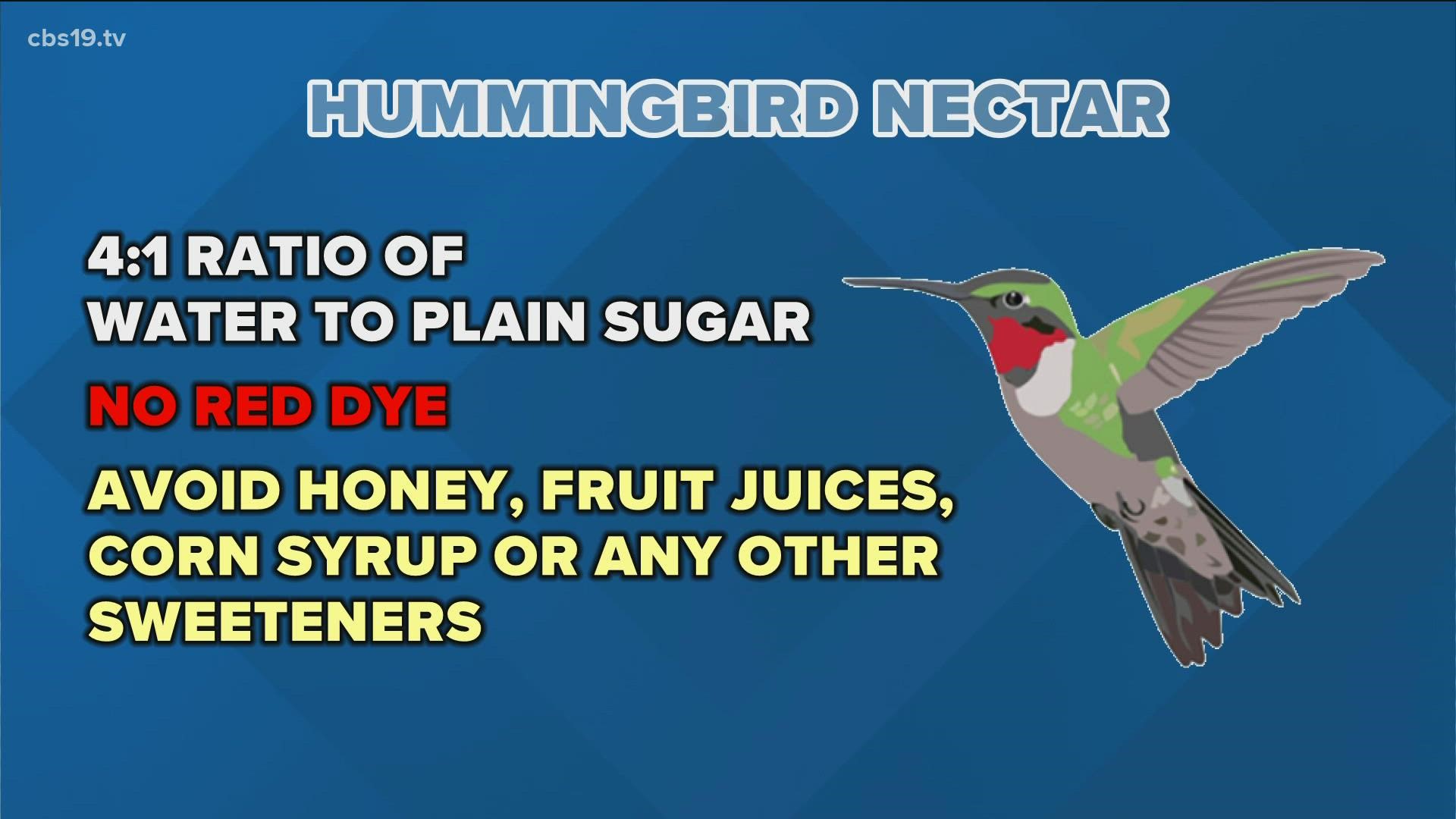TYLER, Texas — Ruby-throated hummingbirds are on the move! It's time for migration as these birds take route from North to South as we enter into our cooler months.
Within the next couple of weeks, an influx of these fluttery feathered friends will be making a stop across East Texas as part of their instinctive migration route.
In the Winter, hummingbirds typically fly to areas South of the US to areas like Central America where they will stay until its time to take flight again in the Spring for breeding season.
Cliff Shackelford, State Ornithologist with Texas Parks and Wildlife, says attracting hummingbirds to your garden can be beneficial as they are not only fun to watch, but are excellent pollinators.
"About one-third of every food bite we eat is thanks to a pollinator so a lot of our food requires pollination and hummingbirds help with that."
Shackelford went on to say when it comes to feeding the birds, an old wives tale is that leaving your bird feeder up too long into the season can delay the birds from continuing on their journey but that information is untrue.
"Birds are hard-wired to migrate. When they're ready to go they will go. Your nectar is not that sweet. It's not sweet enough to make them cancel their plans to migrate South."
However, what you feed the birds is important and if you're filling up a feeder a simple homemade mixture of sugar and water works fine.
"We recommend people put their feeders up with four parts water one part sugar. Red dye is totally unnecessary its not something they consume in nature and the only purpose for red is to service sort of a neon welcome sign that says 'hey come eat here'."
Bird watchers often comment how hummingbirds can appear greedy, or bossy hovering around one feeder and not allowing the other birds to join in but Shackelford says fixing that can be simple
"Get more than one feeder and use your house as a sight barrier and put another feeder on the opposite side of the house so that bullying hummingbird cannot monitor more than one feeder."
If you're interested in more, Shackelford published the book "Hummingbirds of Texas" which is available through the Texas A&M University Press with all royalties going back towards the Parks and Wildlife program for Non-game wildlife.

